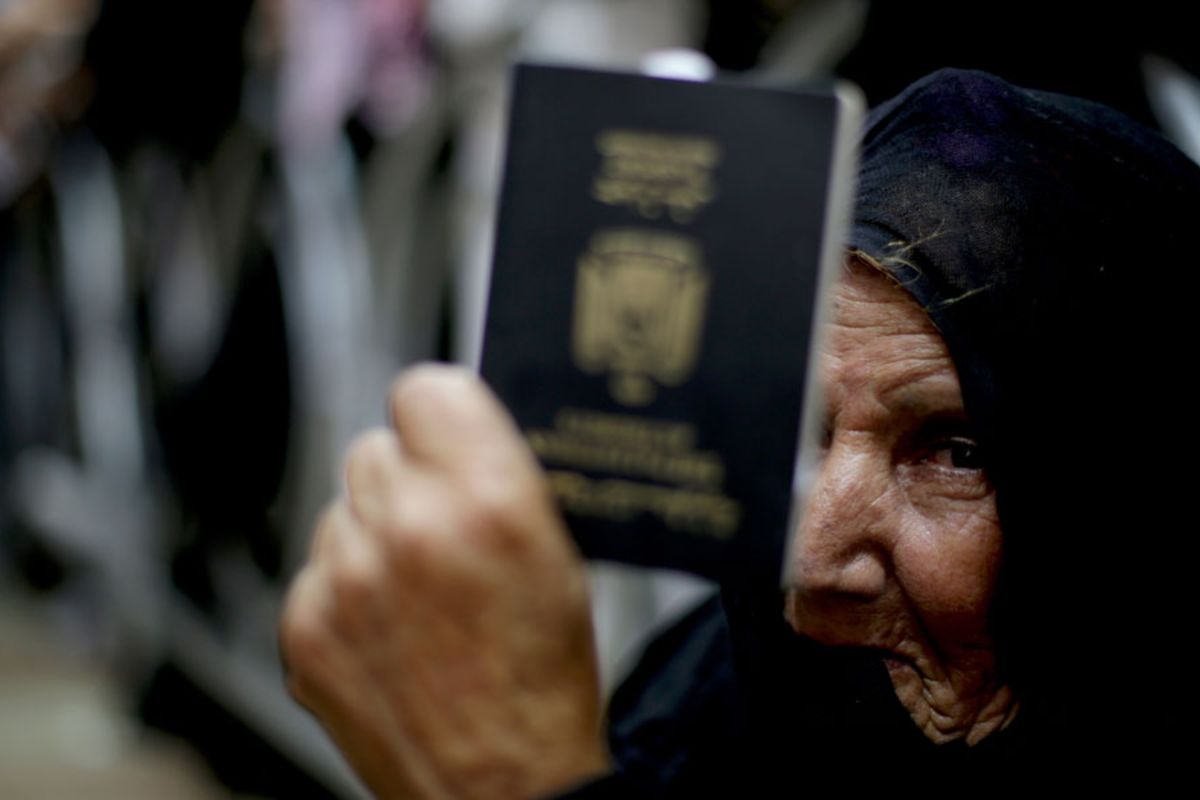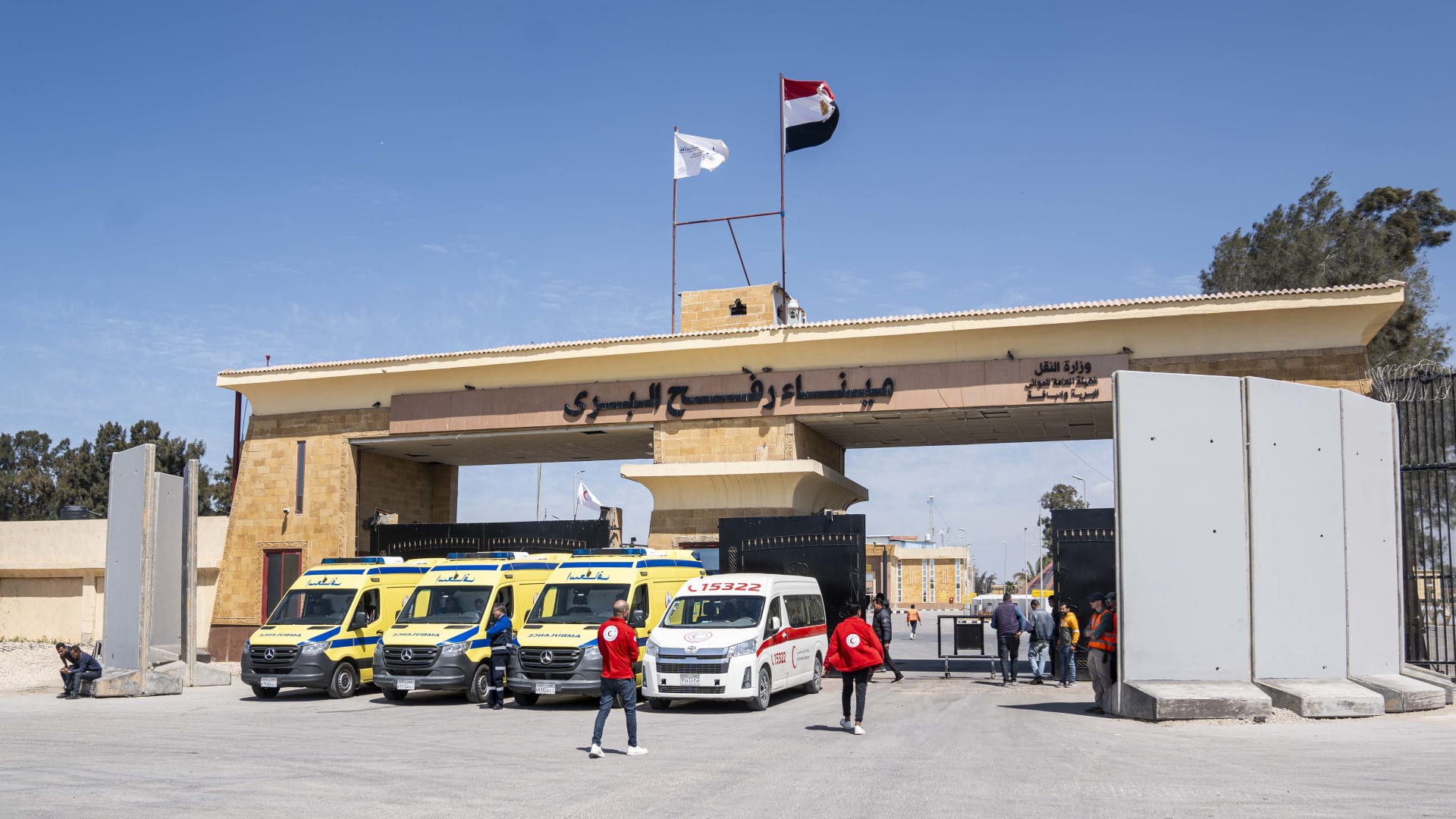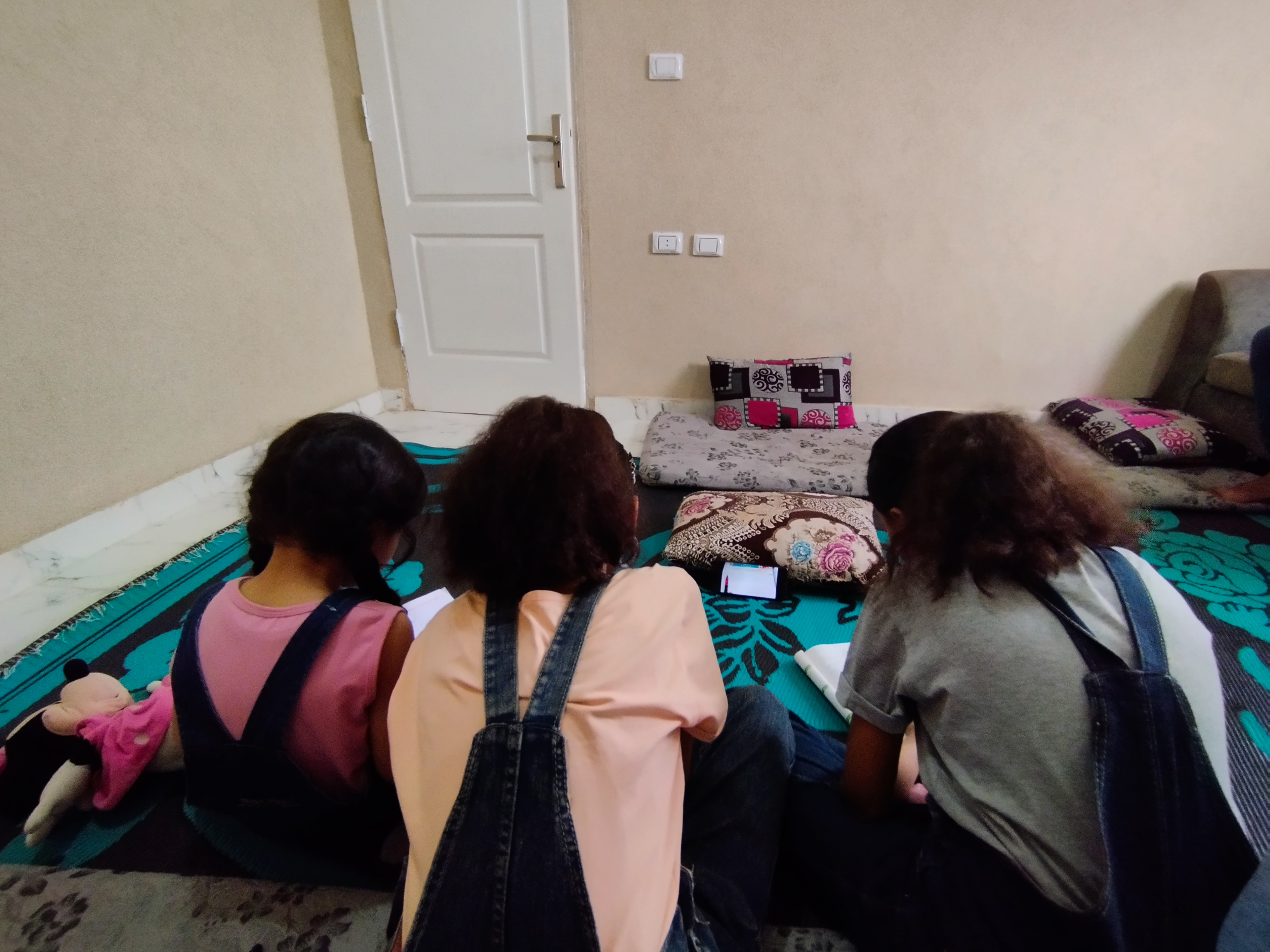From Genocide to Persecution: Palestinians in Egypt Trapped in a Cycle of Suffering

Approximately 5,500 Palestinians came to Egypt following the Israeli aggression on Gaza.
Palestinian refugees who fled the Israeli war on Gaza since October 7, and went to Egypt, are attempting to adapt to the aftermath of war trauma, leaving their homeland, and facing the challenges of settling in a new country or seeking assistance.
Unfortunately, their ordeal continues unabated; they face myriad challenges in accessing medical care and meeting basic necessities. Moreover, Egyptian authorities have been hesitant to provide them with residency, freedom of movement, or the ability to engage with the media, let alone integrate into Egyptian society.
Another group of Palestinians faces similar hardships; those who came to Egypt following the outbreak of war in Syria in 2011.
These individuals have been affected by Egypt’s economic conditions and are denied residency, refugee status, and identity documents. Their plight has extended to their children, who are unable to enroll in various educational stages.
Instead of being supported and having their health and psychological conditions addressed, and receiving their rights based on religious, Arab, and human brotherhood, they have been left to suffer.
A Prison Without Treatment
According to a television statement by the Minister of Health and Population of Egypt Khaled Abdel Ghaffar on May 21, 2024, approximately 5,500 Palestinians came to Egypt after the Israeli aggression on Gaza, through the medical coordination mechanism.
This includes those injured during the aggression or those needing treatment for critical health conditions such as cancer or severe diseases like kidney failure and heart conditions.
On June 6, 2024, Mada Masr website conducted an investigation into the conditions of these patients, revealing that many of them felt they were “in prison” as they described the conditions of their “detention” in Egyptian hospitals after escaping Israeli aggression.
Mada Masr reported the testimony of a 45-year-old injured man from Gaza named Mohamed, who was being treated at Tal al-Kabir hospital in Ismailia Governorate. "The hospital is like a prison; there is no treatment, only painkillers," he said.
He stayed in the hospital for four months without ever leaving. "I needed a haircut badly, and after much suffering, they brought a barber to the hospital. Then, I stayed for four months as if in prison, never leaving for a single day, which led to severe depression," he explained.
“If we try to interact with any Egyptian inside the hospital, the security personnel strictly prevent it,” Mohamed continued.
"A security officer at the hospital almost lost his job for taking pictures with me."
Forbidden to Leave
There is another shocking testimony from Mohamed’s mother, a woman from Gaza suffering from lymphatic cancer, who came to Egypt for treatment at Damietta Fever Hospital. She describes her condition as "extremely critical."
Despite this, she stated that she has not received any treatment for her advanced condition.
"I was supposed to be transferred to the UAE for chemotherapy and continued treatment, but until now, we don't know whether we will stay here or go," his mother said.
"This isn't the only problem. The Egyptian security within the hospital prevents patients from leaving even to buy food or personal necessities."
"If we go out, we must be accompanied by a security guard, and even for food, we must request it so we don't leave the hospital. Moreover, we buy food at many times the market price," she continued.
Similar conditions are reported by Inshirah from Bureij in central Gaza, who came to Egypt with her 15-year-old daughter Hala, who has leukemia (blood cancer).
Inshirah arrived from Gaza and stayed at Fever Hospital Damietta, unable to leave.
"I waited three days to buy food and clothes for my daughter. Going out is not allowed daily and is limited to one to two hours only," she said.
"A specific return time is set, and security accompanies us. When I tried to go out the last time, I was told, 'You have gone out twice already, no more outings.'"
Inshirah described the hospital's conditions and their treatment using the term "prison."
What is worse is that Inshirah complained about the lack of ongoing treatment for her daughter.
"A month and a half without treatment, and they tell us in the hospital: The embassy is supposed to treat you and find a solution for you," she explained.

What's the Reason?
According to the Egyptian Ministry of Interior's data, starting from February 2024, out of the 100,000 Palestinians who crossed into Egypt, over 44,000 were injured, including 10,730 children.
Palestinian activist Jamal Hassasneh commented on this issue, saying, "Unfortunately, there are many challenges facing Palestinians arriving in Egypt amidst global silence on what is happening to the people of Gaza, who have been let down by their close and distant kin."
"The Palestinian who comes to Egypt benefits from a 45-day residency only. After that, their status becomes illegal, and the authorities are stringent in granting residency or considering them exceptional until they are treated," he told Al-Estiklal.
"It is incomprehensible to restrict injured individuals who need high psychological and health care, to neglect their treatment, and leave them to their fate."
"Why restrict Palestinian refugees in Egypt? What crime could they possibly commit there?" the activist wondered.
"Does the Egyptian government currently view Palestinians as a security threat by keeping them in hospitals to make it easier to monitor and control them by detaining them?"
He further asked, "Does the Egyptian government fear the escalation of popular solidarity with the Palestinians and that their voices might reach the Arab world and the international community from Egypt?"
“Are Palestinians in Egypt also victims of political calculations and balances, with the possibility of further complicating relations with Israel because of them?”

Denied Education
In addition to those mentioned, another group of Palestinians in Egypt has been suffering for years without their status being resolved. These are individuals who were forced to leave Syria due to the ongoing war.
Recently, the Arab Reporters for Investigative Journalism (ARIJ) addressed this issue in an investigation titled "How Palestinians who fled Syria war to Egypt are forced into illiteracy?"
Published on June 5, 2024, the investigation stated that all Palestinians in Egypt are accustomed to dealing with a strenuous system for obtaining residency permits.
It explained how those fleeing Syria are systematically deprived of the same documents, making their situation even more precarious.
Many Palestinian families holding Syrian documents resort to alternative, sometimes partial, solutions to provide education for their children.
However, none of these solutions grants Palestinian children in Egypt an officially recognized school certificate, according to the investigation.
Estimates indicate that between 5,000 to 6,000 Palestinian refugees from Syria arrived in Egypt between 2011 and 2013.
It is said that their numbers decreased to about 3,000 after restrictions imposed by the Egyptian government, including residency permit denials, forced some to return to Syria or seek refuge elsewhere.
ARIJ managed to gather data from a hundred Syrian Palestinian families residing in Egypt, concluding that most children are denied education, with some never having attended school.
ARIJ has begun distributing surveys and documenting the situations of these families, all of whom have school-aged children.
According to the survey sample, the vast majority of these families entered Egyptian territories through official border crossings (airports, seaports, or land crossings), with most participants residing in Cairo.
Data analysis revealed that nearly a third (29%) of children in these families have not received any form of education. Among them are those aged 13 years old and older who have not enrolled in school, educational centers, private tutoring groups, or any other educational initiatives.
The data also showed that approximately 47% of children in these Palestinian families were studying outside the formal education system, relying on unofficial Syrian centers, private tutoring groups outside school, or other initiatives.

Lost Protocol
What is striking is that these cases contradict international agreements that Cairo has ratified and adhered to in previous years.
In 1965, Egypt signed the Casablanca Protocol in Morocco, which concerns Palestinian refugees.
It stipulates that Palestinians holding travel documents residing in Arab League countries are entitled to the same treatment as citizens of those countries regarding visa and residency applications.
However, Palestinians have never enjoyed all the protections that the protocol was supposed to guarantee.
While Syrian refugees can enroll their children in private schools in Egypt, this is not an option for Palestinians holding Syrian travel documents.
Even if they could afford to enroll their children in these schools, Palestinian refugees from Syria cannot obtain a school certificate without a valid residency permit.
ARIJ relayed the testimony of Majed, who fled Syria to Egypt seeking a better life for his family amidst the war, only to find that the new life has become even harder.
"Wherever we go, life is extremely difficult because the residency permit is life for us," he said.
Majed was unable to obtain a birth certificate for his youngest daughter. "I dare not go to any government office due to threats from officers and the stubbornness of officials," he stated.
This was exactly the challenge faced by Palestinian citizen Ahmed Saeed when he visited a passport center to renew his residency permit.
Saeed said that one Egyptian officer at the center intended to report him for deportation along with his family but agreed not to do so on the condition that he does not return.
The officer warned him, saying, "Do not come back. If you do, you will be deported."
Sana, a Palestinian refugee from Syria, expressed deep concern about her daughter's future.
"Even if they give us residency permits and we can apply to enroll them in a formal school, despite studying at home in the fifth and sixth grades, they will be placed back in the first grade," she sadly stated.
"Six whole years of their lives will be wasted," she continued tearfully.
Sources
- Egypt's hospitals for the citizens of Gaza are a "prison" without treatment [Arabic]
- How Palestinians who fled Syria war to Egypt are forced into illiteracy
- Palestinian refugees in Egypt: illegal residency and needs [Arabic]
- The wounded in Gaza and their companions abroad: besieged and prevented from moving! [Arabic]












